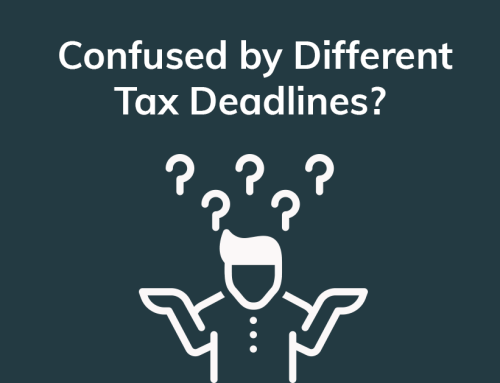Written by Sam Price and Magdalene Aston-Green, qualified accountants and Corporate Account Managers at ICS Accounting.
As we move into the new tax year, please find a summary of the changes which may affect you and your Limited Company below.
Happy New TAX Year!The personal tax allowance is now set at £11,000. The levels at which taxpayers start to pay higher is £43,000 (20% salary, savings, property /7.5% dividends) for 2016-17. Above these limits the rates are 40% on salary, savings, property and 32.5% on dividends. The threshold at which the 45% (38.1% for dividends) rate starts is unchanged at £150,000.
One of the main changes from 6th April 2016 is the dividend tax credit is being abolished, which means that the figures declared on personal tax returns will now be in line to what has been taken from the company. In place of the tax credit the changes then relate to how the dividends will now be taxed. Firstly, the first £5,000 in dividends you receive will be tax free.
For dividends over £5,000, the dividend tax rates are as follows:
– 7.5% on dividend income within the basic rate band
– 32.5% on dividend income within the higher rate band
– 38.1% on dividend income within the additional rate band
From April 2016, Capital Gains Tax on the disposal of chargeable assets, apart from residential property, is reduced to 10% from 18% on disposals that form part of the basic rate band and 20% from 28% on disposals that form part of the higher rate band.
From April 2017, any person under 40 will be able to save into a new Lifetime ISA. Up to £4,000 can be saved each year and savers will receive a government bonus of 25% – that is a bonus of up to £1,000 a year. Some or all of the money can be used to buy a first home, or it can be kept until age 60. Also, the present ISA savings limit of £15,240 will rise to £20,000 from April 2017.
The main rate of Corporation Tax from 1 April 2016 remains at 20%. From 1 April 2017 the rate is set to reduce to 19% and from 1 April 2020 to 17%.
Incorporated property businesses will pay increased stamp duty, individuals are subject to the 3% SDLT supplement if they purchase more than one property, and companies on all residential property purchases even the first such purchase. If, at the end of the day of the transaction, an individual owns 2 or more properties the higher rates will apply. Purchasers will have 36 months to either claim a refund from the higher rates in the event that there is a period of overlap or a gap in ownership of a main residence.
There was no real giveaway on the next direction of IR35 legislation. HMRC closed a consultation on IR35 in September 2015, and we await their next steps. The Institute of Chartered Accountants in England and Wales and Chartered Institute of Taxation were damning of the suggestion that liabilities should be transferred to end clients, whilst IPSE, the body supporting freelancers and contractors, stated IR35 was too complex. We do not expect that any changes will come into effect until April 2017.
In respect of travel and subsistence, the tax year commencing 6 April 2016 brings changes for workers who are employed through an employment intermediary, such as an umbrella company or recruitment agency.
The new rules will apply to workers who are supplying personal services under the supervision, direction or control, of any person, in the manner in which they undertake their role. The changes mean that certain temporary workers will not be able to claim tax relief or a disregard for National Insurance contributions (NICs) on the travel and subsistence expenses they incur on an ordinary commute from home-to-work. In essence, the changes will only apply where the worker is within the charge of the intermediaries legislation, more commonly referred to as the IR35 legislation. The rules relating to travel and subsistence remain unchanged for those operating outside the IR35.
Whether you’re a contractor just starting out, or a small business doing your own bookkeeping that could benefit from specialist accounting and tax advice, please talk to us online or call 0800 195 3750. If you are local to Lancaster, you’re also welcome to pop into our office. You’ll always be greeted with a smiling face.
















